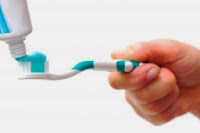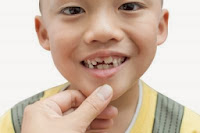This four-part article series discusses 8 important tips for good oral health over and above the standard brushing, flossing and rinsing regime.
Welcome to the final installment of this four-part article series on the efforts we can make – over and above brushing and flossing – to keep our teeth and gums in beautiful lifelong condition. In our previous article post, Part 3, we spoke to a dental implants specialist in Rutherford who explained the following two important tips to us:
5. Kick the habit: Smoking causes tooth discoloration, gum disease, tooth loss and oral cancer.
6. Choose the right toothbrush to get the very best out of your home oral hygiene efforts.
In this article, the final installment of the series, we shall be looking at two final bits of advice dental healthcare professionals have for New Jersey residents.
7. Technique, Technique, Technique!

“You can brush your teeth for three minutes at a time, but if you’re not brushing properly, you simply won’t be getting the clean you need in order to keep bacteria at bay,” says the dental implants specialist in Rutherford. “Because we’ve been brushing our teeth for as long as we can remember, bad habits can become terribly entrenched. We always encourage our patients to reassess their brushing technique and try to learn the correct methods that will give them the most thorough clean.”
Here are some important tips for brushing:
Brush your teeth at least twice a day. Approximately 30 minutes after every meal is preferable (this allows the PH levels in your mouth a chance to neutralize).
Brush your teeth for two minutes at a time, spending 30 seconds scrubbing each quadrant of the mouth.
“Hold the toothbrush at 45 degrees to your gum line. Use short circular brushes to clean the crowns of your teeth and your gums,” says a new teeth specialist in NJ.
Don’t push down too hard! If your toothbrush’s bristles start looking frayed after only a few weeks of using it, you may be using too much force. This can do terrible damage to your teeth and gums.
Store your toothbrush in a dry sheltered place, away from the flushing toilet. Don’t use those special toothbrush storage caps, because they prevent evaporation from drying out your toothbrush. Bacteria thrive in moist environments.
8. Flossing Technique is Important Too!

Brushing takes care of the front, top and back surfaces of your teeth, but what about the sides? This is where flossing becomes essential and explains just why people who neglect to do so daily are at a much higher risk of tooth decay. “Flossing is an integral part of any home oral hygiene routine,” explains a dental implants specialist in Rutherford. “If you don’t floss, you neglect to clean 35% of your teeth surfaces! Flossing is essential for good oral health, so make sure you give your teeth a go-over before you go to bed at night.”
What about flossing technique?
Just like brushing, if you don’t floss correctly, you could damage your gums and fail to give the contact points between your teeth a proper clean. “Wrap a decent-sized section of floss around your index finger (about a foot of floss),” says a new teeth specialist in NJ. “Gently work the floss between your teeth, pulling it against the one surface of your tooth, down and then up again against the other surface of the adjacent tooth in a U-shape. Repeat. For each tooth, use a fresh section of floss.”
A Final Note
By brushing and flossing correctly, seeing your dentist and oral hygienist for regular scheduled appointments and avoiding the bad habits that lead to tooth decay and gum disease, you can keep your teeth in excellent lifelong condition. Never forget the important connection between good oral health and a beautiful smile... or the connection between a healthy mouth and a healthy body!











